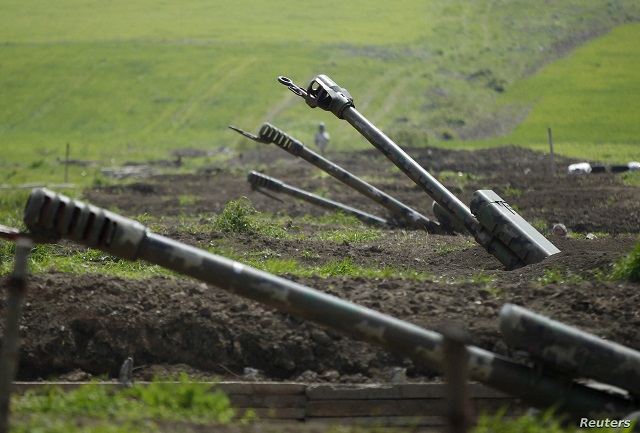This letter was sent to the Prime Minister, Minister of Foreign Affairs, the Dutch Parliament and party leaders on October 22nd.
Since September 27th Azerbaijan has been attacking Nagorno-Karabakh (Artsakh). As members of the professional and academic community in the Netherlands, we strongly condemn Azerbaijan’s unilateral military attack and ongoing aggression against the ethnic Armenians of the region. We strongly condemn Azerbaijan, who as a State party to the Geneva Conventions of 1949 and the Genocide Convention of 1948, shows utter indifference to norms of armed conflict and international humanitarian treaties. And we strongly condemn Azerbaijan’s longstanding violations of the political and civil liberties of its own citizens, who are equally victims of this war on Artsakh.
As the recent attacks on Stepanakert, Hadrut and other civilian areas of Nagorno-Karabakh indicate, Azerbaijan’s aggression poses a direct existential threat to Armenians. While Artsakh’s self-defence forces have in turn responded by engaging military targets (with resulting Azerbaijani casualties, including civilian bystanders), Azerbaijan by contrast has been actively targeting civilian centres, including a hospital. Numerous (ethnically Armenian) civilians have been killed or maimed, among which elderly and children, and there are reports of Azerbaijani forces engaging in atrocities. Armenians are on the verge of being once more ethnically cleansed under the cover of war (see here and here for reports of the office of the Artsakh ombudsman as to the extent of human rights violations). Considering the statements of high-ranking officials and Presidents Aliyev and Erdogan, there are reasonable grounds to argue that as in 1915 there is an intent to destroy ethnic Armenians.
By bombing the town of Vardenis, in the Republic of Armenia rather than Artsakh, Azerbaijan has already escalated its war of aggression beyond the initial line of contact. Where Azerbaijan is supplementing its military with Syrian mercenaries recruited by Turkey, it is furthermore backed by Turkey through bilateral military relations and the latter’s direct involvement in the current war. Azerbaijan is also transporting and using Israeli-made arms and munitions, among which internationally banned cluster bombs (as attested by Amnesty International and documented here). Moreover, the Azerbaijani government has been deploying an extensive network of lobbyists and journalists, aimed at sanitizing both its image and its most recent war, whilst simultaneously waging an extensive cyberwar, propagating hate speech, encouraging violence towards the Armenian Diaspora, and spreading disinformation through traditional and social media.
Read also
If the war on Artsakh is allowed to continue, it will develop into a major regional conflict and an even greater humanitarian catastrophe. Driven by geopolitical interests and institutionalized Armenophobia, President Aliyev’s ongoing military aggression remains an obstacle to lasting peace. But peace, however, is the only way forward for resolving Nagorno-Karabakh’s quest for self-determination. If Azerbaijan’s ongoing attacks on civilians and civilian infrastructures are any indication, recognition of the region’s Armenian population as a valid and central party to the negotiations with Azerbaijan might be the only political means by which future ethnic cleansing of Armenians can be prevented. In order for the Armenians of Artsakh to be masters of their own fate, they must be permitted to captain their own course.
We call, as such, for an immediate end to Azerbaijan’s hostilities and for both sides to return to negotiations.
We urge our political representatives in the Dutch Parliament and the Dutch Government to, additionally :
- condemn Azerbaijan’s war crimes against the Armenians
- condemn Azerbaijan’s violations of the political and civil rights of both Armenians and Azerbaijani’s
- condemn Azerbaijan’s violation of the October 10th ceasefire and the October 18th truce, and its initial attack of September 27th
- deploy diplomatic and economic sanctions against Azerbaijan in order to enforce a ceasefire
- demand, by way of diplomatic or economic sanctions, that Turkey withdraws both its military personnel as well as hardware from the conflict
- undertake steps to guarantee that the current Republic of Artsakh is recognized as the central party in the negotiations
And, lastly we ask fellow members of the professional and academic community, and the leadership of our respective (academic) institutions and organizations, to stand with us and sign this letter.
See for an overview of the linked sources here.




















































